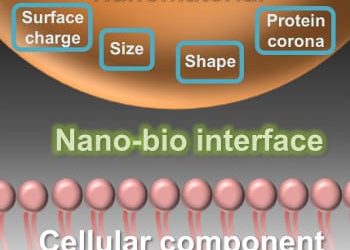The Deutsche Forschungsgemeinschaft (DFG, German Research Foundation) has approved the establishment of three new research units. This was decided by the joint committee of the DFG, Germany’s central self-governing research funding organisation, at its July session, which was held during their annual meeting. The purpose of the collaborations is to offer researchers the possibility to pursue current, pressing issues in their subject areas and to establish innovative work directions.
As with all DFG research units, collaboration between the new units will be interdisciplinary and span multiple locations. In the initial 3-year funding period, they will receive approximately €6.5 million. This announcement brings the number of research units funded by the DFG to 221.
The new research units are:
How does pressure affect solutions of biomolecules? The research unit “Exploring the Dynamical Landscape of Biomolecular Systems by Pressure Perturbation“ will pursue this question in order to provide a molecular understanding of these effects. This is the subject of analysis because pressure affects the structure and dynamics of biomolecular systems by changing the specific volume. Researchers at the universities of Dortmund, Bochum and Regensburg also want to investigate the self-assembly of proteins and to control processes associated with the membrane and those involving enzymes. They will use a combination of different experimental biophysical methods and high-pressure techniques supplemented by modern theoretical processes to find out about the solvation, dynamic and conformation of biomolecular systems.
(Spokesperson: Professor Dr. Roland Winter, Technical University, Dortmund)
The Research Unit “Multifunctional Changes to Materials and Energy” is concerned with heat engines which can produce or absorb mechanical work, heat and chemicals as required. With energy transition a major objective, energy conversion and storage are more important than ever. However, processes to date are designed for one type of energy only. For example, engines only convert the chemical energy of fuel into mechanical work. The Research Unit seeks to use engines to produce high-quality basic chemicals as a “by-product”. This would allow fuels to be used more effectively and also superfluous energy to be stored in the form of such chemicals.
(Spokesperson: Professor Dr. Burak Atakan, University of Duisburg-Essen)
Molecules encounter surfaces and settle on them – this is the process being investigated by the “funCOS – Functional Molecular Structures on Complex Oxide Surfaces” Research Unit. Researchers from the areas of chemistry, physics and materials science will use selected systems to analyse the binding properties of larger molecules on oxide surfaces on an atomic scale. They have at their disposal a number of sophisticated experimental methods which have recently allowed new insight into this area, which has received little research to date. The primary goal is to create a knowledge-based design of molecule-oxide interfaces and thus acquire fundamental knowledge for future generations of semi-conductors and catalytic converters.
(Spokesperson: Professor Dr. Jörg Libuda, Friedrich Alexander University Erlangen-Nuremberg)
Source: DFG













